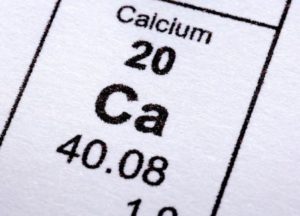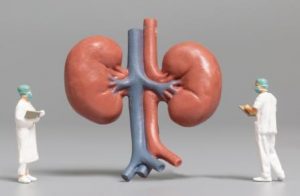Protein powders are one of the most popular health supplements available in the market. While some people consume them to build healthy muscles, others use them to meet their daily protein requirements.
However, people wonder if there are any hidden dangers or side effects of protein powder. If you too have the same concern, then don’t worry, we will help you out!
In this article, we are going to warn you about 8 dangers associated with consuming protein powders.
Protein Powders: What Are They?

Before we warn you about the potential dangers of protein powders, let’s first explain to you what they are. Protein powders are popular protein supplements that are either plant-based (soy, peas, chia, hemp, etc.) or animal-based (casein and whey, etc.).
People drink protein shakes to build muscles, lose/gain weight and meet their daily protein requirements.
Protein powders are available in the market in different flavors. Sometimes, manufacturers also add sugars, artificial flavors, and other preservatives, etc., into them.
8 Protein Powder Side Effects
Although most protein powders are safe for consumption, their overconsumption and possible contamination can be hazardous for your health. Some of the hidden dangers of protein powders include:
1. Toxic Ingredients

One of the biggest dangers associated with consuming protein powders is their potential contamination. Since the FDA has not put regulations on every protein supplement, you may not know what harmful ingredients you’re consuming in the name of protein powders.
Moreover, a new study has revealed that many protein powders contained heavy metals (lead, arsenic, cadmium, and mercury), which can lead to serious illnesses. What’s more worrying is that some of these contaminants were present in very high quantities.
2. Disrupted Bone & Calcium Balance

Studies recommend that adults need to consume 0.8 g of protein per kg of their body weight daily. However, this recommend protein dosage may differ according to their built, weight, training, and fitness goals.
Only those who are unable to obtain enough protein from their diet should go for a protein supplement. Too much protein will bring more harm than good and lead to various ailments.
Research suggests that high levels of protein over time can affect your body’s bones and calcium balance.
In addition, it may also prevent you from consuming other beneficial foods, such as, fruits, vegetables, and legumes, which the body requires to support healthy gut bacteria.
3. Cause Gastrointestinal Problems

Sometimes, overconsumption of protein powders can lead to gastrointestinal problems like indigestion, flatulence, or bloating.
Especially for those who have dairy allergies or for lactose-intolerant people, protein powders can cause great discomfort (if they use a milk-based protein powder).
4. Cause Weight Gain

Certain protein powders might contain very high amounts of sugars and calories. While some protein powders contain little added sugar, others contain a large amount (about 23 g per spoon). This can exceed your daily calorie limit and result in undesirable weight gain.
Note: Always check the ingredients label behind protein supplements to ensure that they are free of added sugars and other preservatives.
5. Interact With Certain Medicines
Some protein powders, such as whey protein, can react with certain medications and reduce the body’s ability to absorb some drugs. These are:
- Albendazole, which is a medication for tapeworms.
- Osteoporosis medication like Alendronate.
- Antibiotics such as Cipro, Trovan, and, Radar, etc.
6. Cause Kidney Problems

Consuming certain types of protein can cause kidney problems. For example, whey protein may hinder the regular functioning of your kidneys by increasing the urea content of plasma, urinary calcium, and excretion. It overloads the kidneys and may result in kidney stones.
Note: If you consume whey protein powder, do not forget to increase your intake of water and fiber to neutralize it.
7. Trigger Allergies

Food allergies occur when a specific protein triggers an over-immune response in your body. For example, cow’s milk, milk, soy protein, and eggs, etc., can trigger allergies in some people. Similarly, protein powders based on these ingredients may cause rashes, vomiting, diarrhea, bloating, and flatulence in allergic people.
8. You May Not Be Getting Enough Protein

Nothing could be worse than taking protein supplements but not getting enough protein! Some brands cheat their customers by adding cheap ingredients such as free-form amino acids and nitrogen-rich nutrients to their protein powders. This process is known as ‘protein spiking‘. Due to this reason, your protein powder may not have as much protein as it claims and can cause protein deficiency in you.
FAQs
1. What happens if you consume protein powder without working out?
The average protein shake contains about 30 g of protein and protein is very high in calories. Therefore, if you eat a little too much, and don’t work out, it will be stored as fat in your body and make you gain weight.
2. When does protein powder expire?
Most protein powders available in the market come with a shelf life of 8 months to 1.6 years when stored in a cool, dry place. Moreover, many of them contain added preservatives that can extend their shelf life for up to 2 years.
Conclusion
By now, we hope that you are aware of the potential dangers of protein powders. In case you experience any unusual side effects after consuming your protein powder, immediately stop using it and consult with your doctor!
Also, we have made up a list of the best and safe protein powders for you to choose from. These supplements are free from artificial sugars, thickeners, and preservatives. After all, your health is our priority!
For any further questions or doubts, please reach out to our comment section below. We will be happy to help you!


